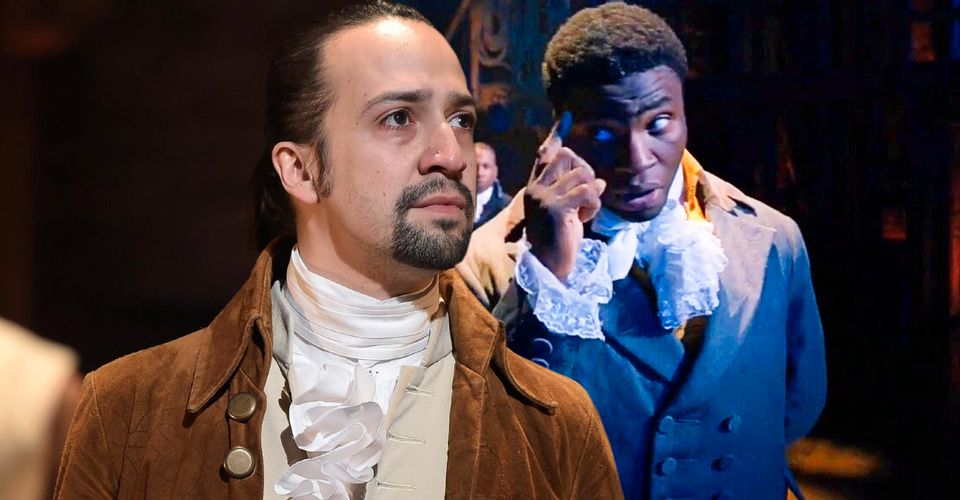Hamilton: Why James Madison Changed Sides & Supported Thomas Jefferson

Alexander Hamilton’s feud with Thomas Jefferson is a big part of Hamilton, the Broadway-musical-turned-cultural-phenomenon, and here’s why congressman James Madison changed sides, switching his support from Hamilton to Jefferson. In the original Broadway version that debuted in 2015, Madison appears in Act II and is portrayed by actor and singer Okieriete “Oak” Onaodowan. In a dual role, Onaodowan also played the part of Hercules Mulligan in Act I. Madison is a friend of Daveed Diggs’ Jefferson, who serves as the primary antagonist to Hamilton – the role that Lin-Manuel Miranda originated.
Though much is now broadly known about Hamilton’s life thanks to Miranda’s creation, Madison is only a minor character in the Founding Fathers-based musical. The narrative details Hamilton’s life and his rise to prominent political status, in addition to his personal shortcomings and the opposition he faces from his adversaries like Jefferson. Madison’s character provides a bit of comic relief during the second act, like the squeaky “Please” he mutters when Jefferson asks to focus the story back on politics. Historically, Madison is known for being the fourth president of the United States, the author of the Bill of Rights, and the “Father of the Constitution.”
Ultimately, the reason Madison changed sides to support Thomas Jefferson was because Madison disapproved of Hamilton’s economic plan. In the musical, Madison starts off supporting Hamilton; the song “Non-Stop” at the end of Act I references the pair’s collaboration (along with John Jay) in drafting the Federalist Papers, which were written in favor of the U.S. Constitution. But during “What’d I Miss,” the very first song in Act II of the musical, Madison tells a newly-arrived Jefferson that he’s been fighting against Hamilton. Madison informs Jefferson with some urgency that “Hamilton’s new financial plan is nothing less than government control,” indicating his opposition to the idea. By the time Madison and Jefferson start taunting Hamilton together at the end of “Cabinet Battle #1,” it’s clear that Madison’s support has shifted.

In terms of the historical events that inspired Hamilton, that is essentially what happened. Hamilton introduced his economic proposal, calling for a national bank to centralize loans and credit while also overseeing the nation’s money supply. Madison felt that this idea went against the ideals of the new nation. He had worked hard alongside Hamilton to help ratify the Constitution, and it appeared as if Hamilton was promoting something that was unconstitutional. In Madison’s eyes, a national bank gave too much power back to the federal government, thus inspiring the lyrics “So he’s doubled the size of the government / Wasn’t the trouble with much of our previous government size?” in the musical’s song “Washington on Your Side.”
Historically, Congress ended up passing a bill in favor of Hamilton’s plan, and Madison’s resentment for his new adversary was only beginning. For the musical Hamilton, this opposition – as well as any opposition – seemed to act as a catalyst for Hamilton’s hasty and aggressive decisions. Hamilton was so confident in his own ideas that he had a difficult time reconciling with opposing views like Madison’s. In real life, the increased animosity between the two Founding Fathers also ended up creating a split into two opposing political parties, which of course echoes into the 21st century today.
About The Author


















